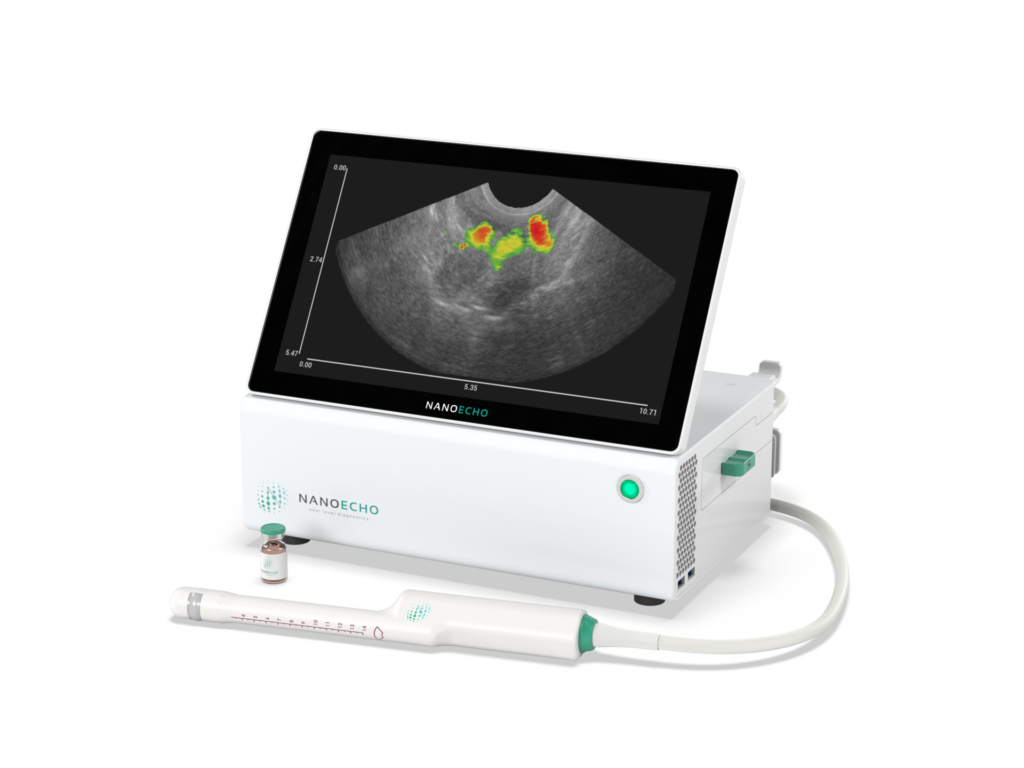– a method with the potential to generate significant health economic benefits

– a method with the potential to generate significant health economic benefits

Press releases (SV)
Reports (SV)
Latest news from NanoEcho
Latest news from NanoEcho
NanoEcho in summary
In a short time, NanoEcho has gone from being a research-focused company to today being a medical technology product development company, with both a clinical and commercial focus.
The number of persons affected by rectal cancer globally is expected to increase by 50 percent from 2020 to 2030. This is largely due to an increase in life expectancy and the fact that the Western lifestyle is spreading throughout the world. Today, established clinical practice for mapping the spread of rectal cancer to the lymph nodes is insufficient, which means that the majority of patients with early rectal cancer undergo major risky interventions unnecessarily.
NanoEcho is developing a diagnostic method to map any spread of rectal cancer to nearby lymph nodes. This is an important marker of how advanced the cancer is and enables an optimal individually adapted treatment. The patented technology uses a magnetic field and iron oxide-based nanoparticles together with modern ultrasound technology, in a completely new way. Given the global increase in rectal cancer cases, combined with the introduction of screening, the method has a large market potential.
Today, the majority of patients diagnosed with early rectal cancer are recommended to undergo an extensive and risky surgical procedure. Published research has shown that in 9 cases out of 10, a significantly smaller intervention would have been sufficient. With NanoEcho’s improved diagnostics, there is potential for healthcare to optimise its resources, while improving patients’ quality of life. Overall, this means large health economic gains.
NanoEcho’s management consists of a team with extensive experience and knowledge in medical technology and the commercialisation of medical devices, a team with documented experience in taking products from idea stage to commercially viable launches. The company has in a short time gone from being a research company to becoming a medical technology product development company with a clinical and commercial focus.

NanoEcho’s innovative method, with its high precision, aims to facilitate the differentiation between diseased and healthy tissue and at the same time determine a more precise localization of cancerous tissue. The goal is to provide a more reliable diagnosis of, for example cancer diseases, that has the potential to contribute to cost-effectiveness in the health care.
Not For Sale – For Clinical Investigation Use Only – EU Trial No.: 2024-515335-29-00